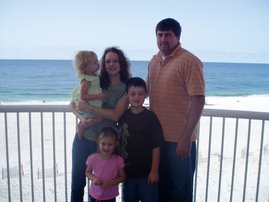
Black Hands, White Sails: The Story of African-American Whalers by Patricia C. McKissack and Fredrick L. McKissack (152 pages; 3 books) #16, 17, & 18
McKissack, Particia C., Fredrick L. McKissack (1999). Black hands, White sails: The story of African-American whalers. New York, NY: Scholastic Press.
Awards: Coretta Scott King Award
McKissack, Particia C., Fredrick L. McKissack (1999). Black hands, White sails: The story of African-American whalers. New York, NY: Scholastic Press.
Awards: Coretta Scott King Award
Grade Level: 5-10 grades
Author Credibility: The McKissack’s research their topic thoroughly before beginning a book. They look through archives and personal accounts of the people they are writing about.
Summary/Response: This story talks of the African-American whalers during the 1800’s. The McKissack’s are careful to mention the heartaches of all the whalers and their families, not only the African-Americans. She does take it a step further and explains that the African-Americans could be predominant in whaling and in business, but their children not be allowed into white schools. It steps the life of several black whalers and their success in whaling as well as inventing. Lewis Temple, a blacksmith, invented a “toogle” harpoon with barbs so it can stick into the whale more easily. William Shorey was a well known sea captain and before the birth of their children his wife would accompanying him on voyages. I knew that whaling went on during the early colonial times, but I had no idea the influence it had in northern society.
Now days we take modern communication for granted. Just about anyone around the world is a phone call or mouse click away. I could only imagine being away from a family member for years at a time, not knowing if they would even return!
National Standards: Language: Students read a wide range of print and nonprint texts to build an understanding of texts, of themselves, and of the cultures of the United States and the world; to acquire new information; to respond to the needs and demands of society and the workplace; and for personal fulfillment. Among these texts are fiction and nonfiction, classic and contemporary works.
Social Studies: Understands how political, religious, and social institutions emerged in the English colonies, Understands the impact of the American Revolution on politics, economy, and society, Understand the processes, patterns, and functions of human settlement, Understand how human actions modify the physical environment, Understand how physical systems affect human systems, Understand the changes that occur in the meaning, use, distribution, and importance of resources.
Illustrations: Primary Source documents, Black and white photographs, Black and white sketches and paintings
Access Features: Table of Contents, Acknowledgements, Introduction, Appendix, Important Dates, Bibliography, Index
Related Texts: Fredrick Douglass (History Maker Bios) by Catherine A. Welch- he worked as a ship’s caulker in Nantucket after he ran away from slavery.
Classroom Use: This could be used when discussing Early U.S. History. I can also be used in discussing the importance of ensuring the survival of animal species. It is also interesting to look at whaling before the civil war and after.

1 comment:
Wow...I had no idea about any of this. Now I want to read this book! I'm going to have so many to read just from this class!
Post a Comment